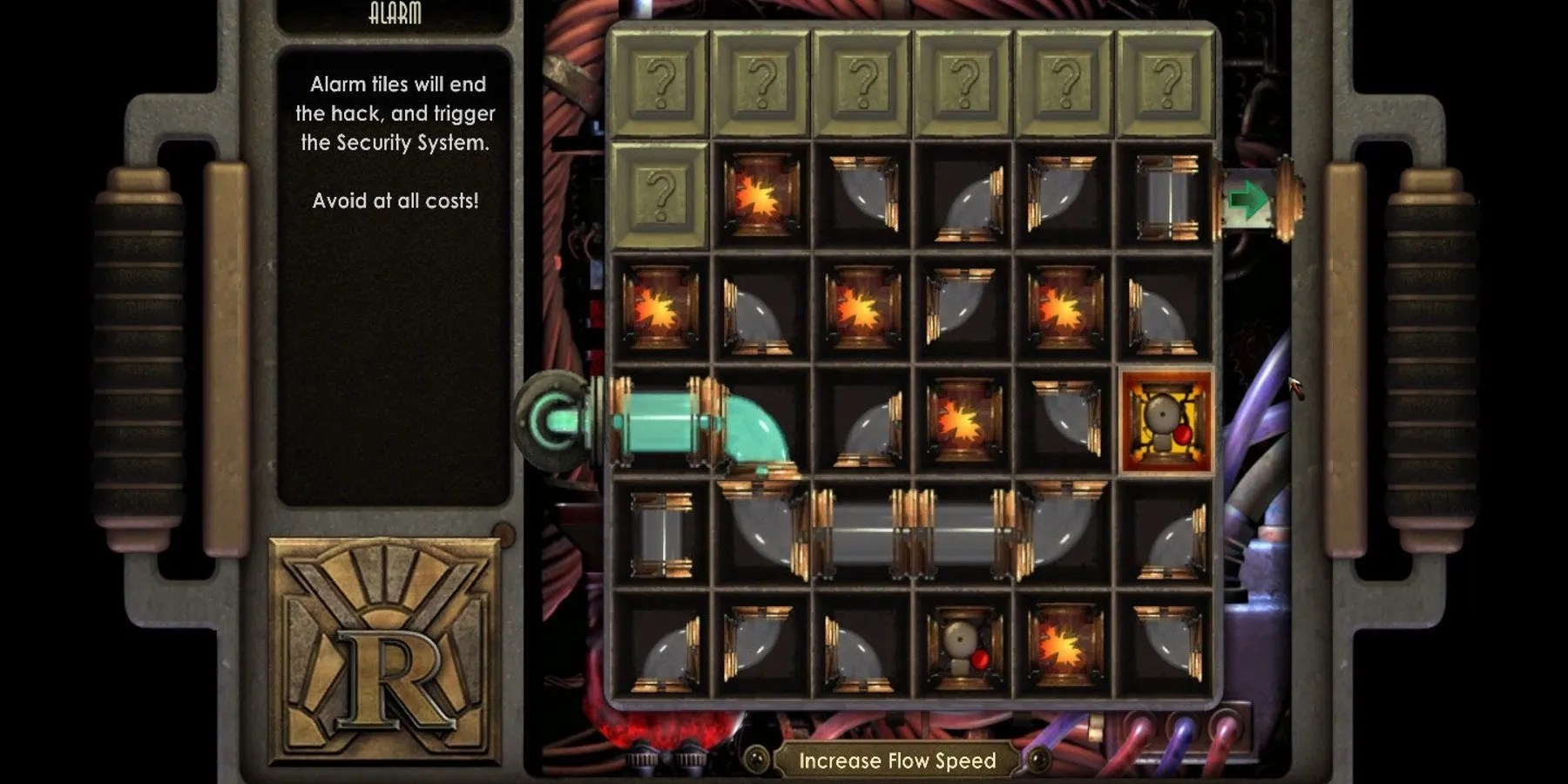The firstBioshockgame holds a special place in the hearts of many gamers. As a spiritual successor toSystem Shock 2, the game managed to captivate gamers with its fascinating setting, memorable characters, philosophical dilemmas, and ethical choices — not to mention its excellent gameplay. The game was ahead of its time and was a gamble for the studio to take. Thankfully, the game was a critical success that spawned sequels, and even has aNetflix film adaptation in the works.
Although the gaming community has mixed thoughts regarding the otherBioshockgames, the overall franchise is still very well received. That said, there are several things about the originalBioshockgame that simply make it stand out andbetter than its sequels.

ThoughBioshock 2started with a bang andInfiniteblew players literally through the roof, the originalBioshock’smysterious introduction set the stage and introduced playersto a whole new world.Combining a fiery plane crash with players surviving and washing up onto a lone lighthouse in the middle of nowhere, the game had players hooked right from the get-go.
RELATED:BioShock 4 Could Be Revealed This Summer
With no cutscenes, players are confronted with the iconic tone and philosophical current of the game with the words: No Gods Or Kings. Only Man. From there on, players a submerged into the strange yet alluring world of Rapture and are introduced to Andrew Ryan’s passionate defiance and welcome reception. It’s arguably one of the best video game introductions ever made.
5A Pervading Sense Of Mystery
SinceBioshockis the first game in the series that introduces players to Rapture, players are immersed in the world-building and crumbling dystopia of the decaying city. An underwater city set in the 1960s is an already intriguing premise, and the game’s lack of cinematic cutscenes allows players to feel immersed in the gameplay and world.
The lack of NPC encounters also heightens the loneliness and eeriness throughout the game, as most interactions with NPCs and characters happen over the radio. The game is littered with various audio diaries which players can pick up and play, a mechanic that came back in the sequels as it allowed players to slowly dive into what was going on around them.Bioshock 2has players return to the city of Rapture years after the events of the first game, andBioshockInfinite’sColumbia, whilst interesting in itself, doesn’t capture the same sense of mystery and foreboding that the original did.

4The Horror
Though not the most terrifying game out there,Bioshockis still considered a horror game and itcertainly has its moments.The dark areas of Rapture and the mutated splicers are exceptionally creepy foes. First encounters with Big Daddies are also terrifying, given how much stronger they are than the regular enemies.
RELATED:Horror Games Set At Sea, Ranked
Fans of the game will notably cite Fort Frolic as a level that stands out in this regard. Here, the kingpin of the area, Sander Cohen, asks the player to contribute to his deranged masterpiece by having the player murder and photograph Cohen’s former proteges. Splicers also behave differently in this level, and are noticeably more creepy and disturbing. This is no surprise given that the main level designer of Fort Frolic is Jordan Thomas, famous for the creepy ‘Robbing the Cradle’ level inThief 3.
3The Best Antagonists
Simply put,Bioshockhad thebest and most iconic villains, with Andrew Ryan, Frank Fontaine, Sander Cohen, and even Yi Suchong (whom players only get to listen to via audio diaries) taking the main stage. Well crafted and easily distinguishable from one another, these antagonists make elevateBioshockfrom a good game to a great one.
RELATED:Iconic Video Game Monologues
No player can forget Andrew Ryan’s iconic speech: ‘A man chooses, a slave obeys,’ can be considered among some of the best monologues in gaming history. Frank Fontaine’s transformation from friendly pal Atlas to the unscrupulous ‘king of the ashes’ still hits home. Sander Cohen completely steals the limelight when he is introduced, and the fact that he can be taken out or be simply left alone is a genius design choice. Finally, though never encountered alive, Suchong’s influence and actions are revealed as players progress into the game, his grisly remains mirror the horrendous deeds he carried out in life.
It’s no debate that the ‘Would You Kindly’ reveal is considered one of the most brilliant andunexpected twists in gaming history.As much as it is a narrative device, the game also brings down the fourth wall by illustrating the blind direction and orders the player has been following this whole time.

The reveal combined, with the excellent writing and voice acting done by Armin Shimerman (the voice of Andrew Ryan) exemplified in Ryan’s monologue, createsa moment of introspectionand thought for the player in the most natural and immersive way possible. None of the other games even comes close to recreating this effect.
1The Best Minigame
Though not the most immersive experience,Bioshockhad an excellent hacking minigame when it came to exerting control over the machines and security bots scattered around Rapture. Easy to grasp and rather fun, the minigame offers a brief respite for players to get away from the combat and decaying landscape.
Bioshock 2introduced a hacking gun that offered a ‘more tactical’ and immersive minigame that replaced the old one. However, the new version whilst making more sense didn’t capture the same charm and simple fun of connecting various glowing blue tubes.

